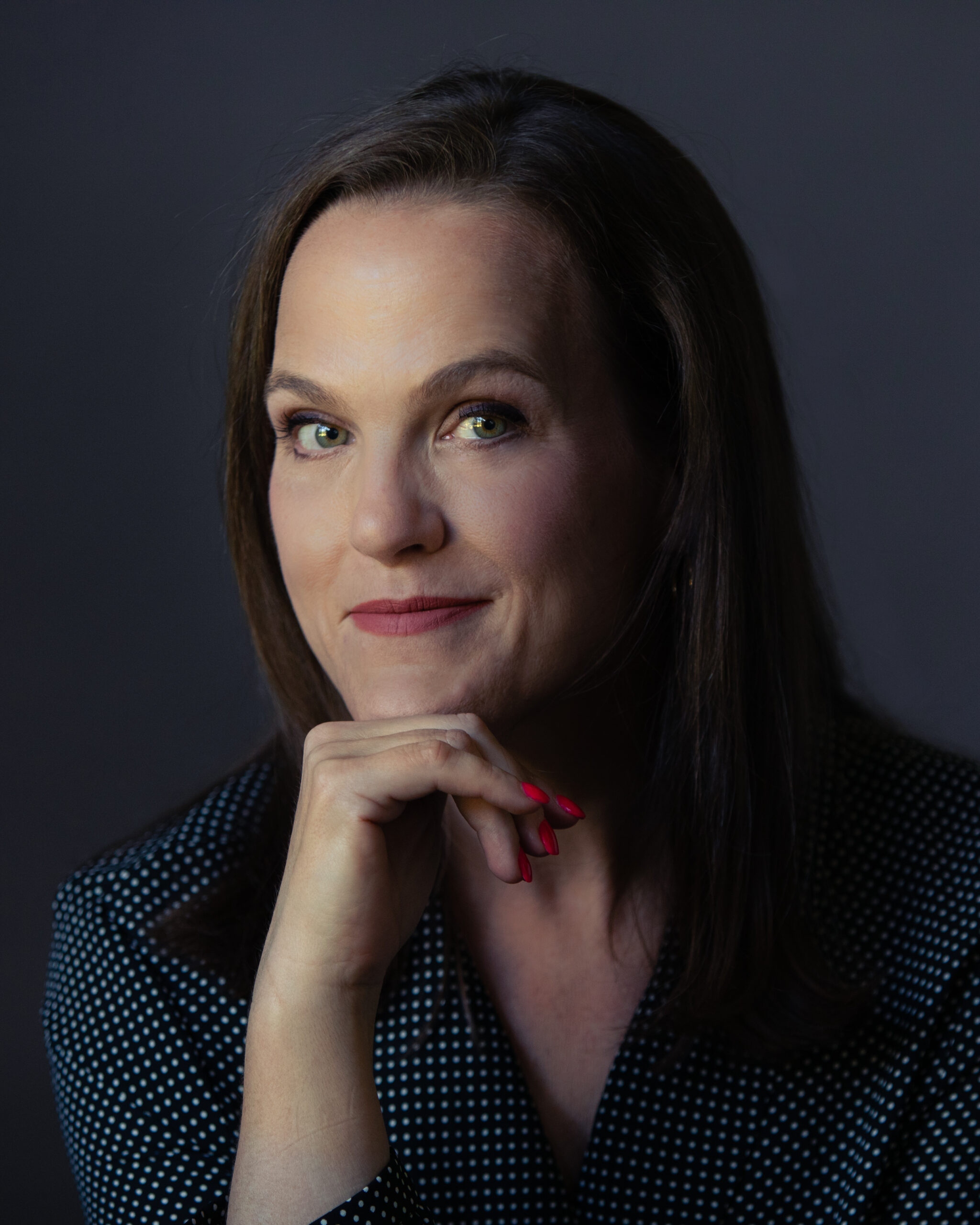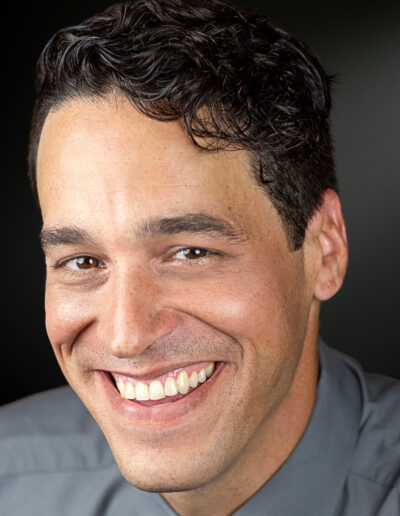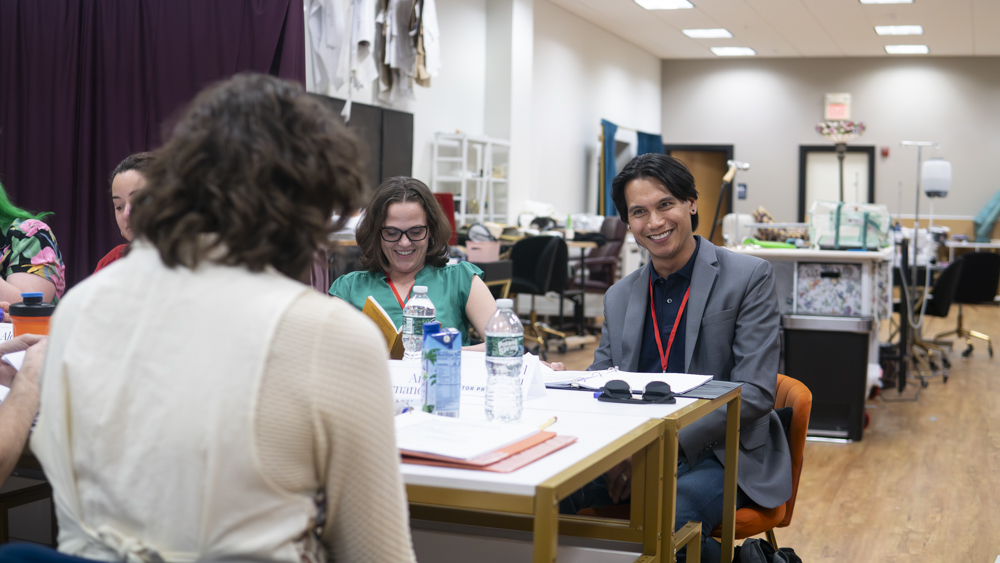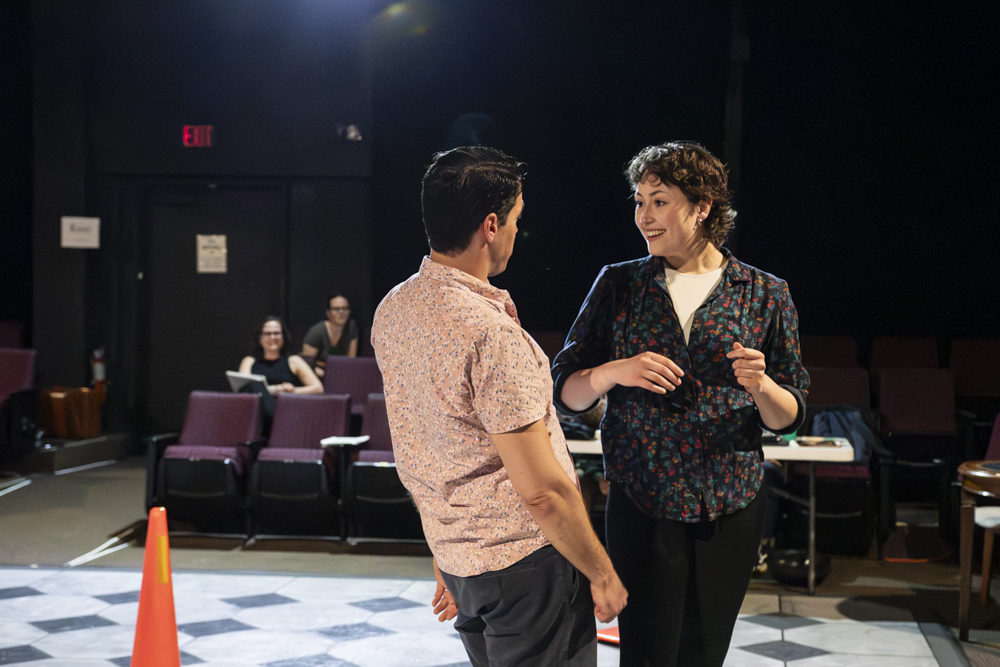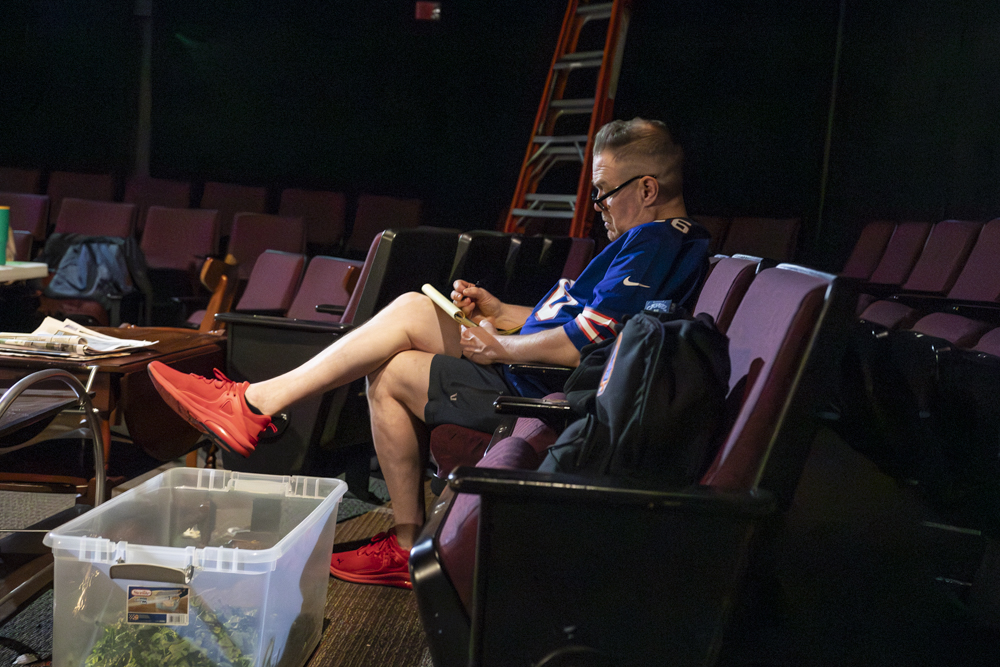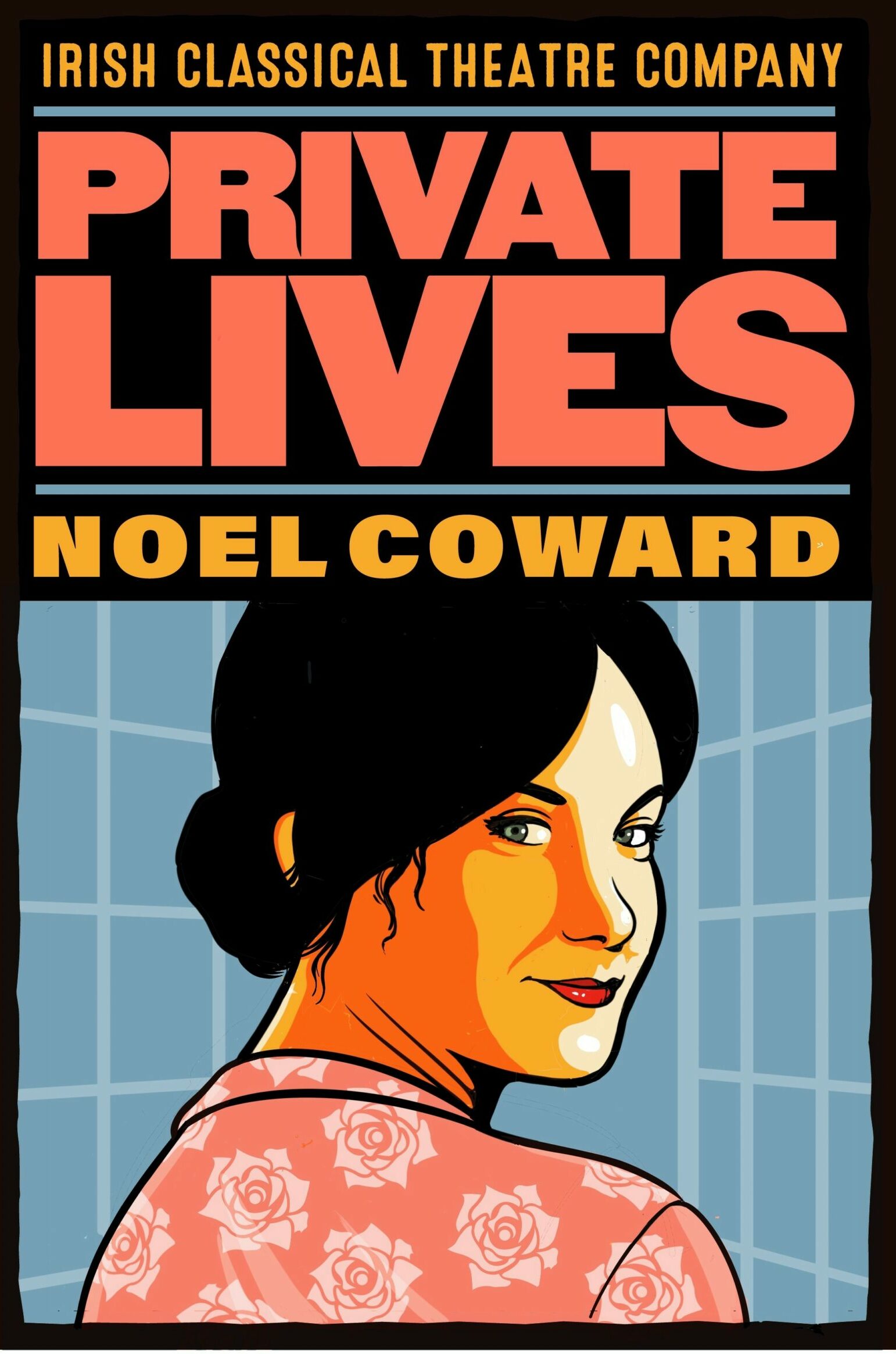
Show Artwork by Michael Gelen, Inkwell Studios.
Show Information
View Irish Classical Theatre Company’s production of Private Lives, June 7-30, 2024.
Show Run Time: Approximately 2 hours, with one 15-minute intermission.
Content Warning: Themes of verbal and physical domestic altercations, racist and colonial perspectives, and mature language.
Cast
Sibyl Chase Anna Fernandez †
Elyot Chase Ben Michael Moran*
Victor Prynne Darryl Semira*†
Amanda Prynne Jenn Stafford
Louise Maria Pedro †
*Member, Actors Equity Association
† ICTC Debut
ICTC Creative Team
Director
Chris Kelly
Production Stage Manager
Lauren Costello Yager
Assistant Stage Manager
Alexia R. Guzmán
Set Designer
David Dwyer
Lighting Designer
Matthew DiVita
Props Designer
Donnie Woodard
Sound Designer
Stephen Schapero †
Costume Designer
Vivian Del Bello
Fight Director
Steve Vaughan
Intimacy Director
Jessica Hillman-McCord
Dialect & Speech Coach
Megan Callahan
Dramaturg
Matt Refermat
Wardrobe Supervisor & 2nd ASM
Kaylie Horowitz †
Production Videographer & Media Specialist
Sarah Potter
Private Lives
By Noël Coward
June 7, 2024 – June 30, 2024
Directed by ICTC Associate Director Chris Kelly
Elyot and Amanda are both happily married… for the second time. Both honeymooning with their new spouses Sibyl and Victor, the couple finds themselves staying in adjacent rooms at the same hotel. Despite a volatile history, this chance encounter reignites their flame, causing chaos for their new spouses. ICTC Associate Director Chris Kelly leads a dynamite cast, featuring Anna Fernandez, Ben Michael Moran, Maria Pedro, Darryl Semira, and Jenn Stafford in this fun and fresh take on Noël Coward’s classic comedy to finish our 33rd Season.
Additional Programming:
Open Rehearsal (for Subscribers Only): Wednesday, May 29, 2024, at 6:30 pm
Pay-What-You-Will Performances*: Saturday, June 8, 2024, at 3:00 pm,
Saturday, June 8, 2024, at 7:30 pm,
Saturday, June 15, 2024, at 7:30 pm,
Saturday, June 22, 2024, at 7:30 pm,
Saturday, June 29, 2024, at 7:30 pm
(*Purchase in-person at the Box Office on the day of the performance. Seating subject to availability.)
Speaker Series: Sunday, June 9, 2024, at 1:30 pm;
Join us for a captivating Speaker Series featuring Dramaturg, Matt Refermat, as he delves into the multifaceted layers of Noël Coward’s acclaimed comedy, Private Lives. Both before and after the show, Matt will lead discussions unraveling the play’s intricate themes, its profound social commentary, and the razor-sharp wit that defines Coward’s writing. Against the backdrop of 1930s glamour, Private Lives masterfully skewers the idiosyncrasies of the upper class while delving into the timeless intricacies of human relationships. Together, we’ll explore how the aftermath of World War I and the evolving gender dynamics of the era shaped the characters’ actions and motivations. By contextualizing these elements, this presentation promises to enrich your experience, offering fresh insights into how Private Lives remains a pertinent and compelling narrative for contemporary audiences.
Community Matinee: Wednesday, June 12, 2024, at 10:00 am
Open Captioned Performance: Thursday, June 27, 2024 at 7:30 pm
An LED captioning screen, located in the South East corner of the theatre displays the dialogue and any other audio portion of the production in text form in sync with the performance.
Director & Dramaturg Note:
“Very few people are completely normal really, deep down in their private lives.” Amanda Prynne, from Noël Coward’s Private Lives
Biographer John Lahr notes Noël Coward’s comedies of “bad manners” depict characters who are “grown-up adolescents,” existing in a world devoid of familial responsibilities and defined by their pursuit of pleasure. In Private Lives, set against the backdrop of Europe circa 1930 (an era marked by economic depression and global conflict) the frivolity of these characters may seem both captivating and disconcerting. Lahr astutely observes that they are “monsters of vanity and selfishness,” their actions resonating with a certain dignity despite their moral ambiguity. Coward, himself a master of language, recognized the significance of laughter and the artistry inherent in linguistic expression. His characters, including our protagonists Amanda and Elyot, wield language with expert precision, engaging in witty repartee that both charms and disarms. Again, much like Coward himself, beneath an edifice of sophistication and wit, a darker reality lies lurking.
Colonialism’s legacy is baked into every facet of every culture on our planet. The English colonial legacy looms especially large. Amanda and Elyot, like their compatriots, are implicated in this legacy, exhibiting traits of entitlement and domination. They are emotional terrorists, manipulating and toying with the lives of those around them, leaving behind a trail of destruction in their wake. Amanda and Elyot’s tumultuous relationship is marked by moments of physical and emotional conflict, challenging the audience to confront the consequences of their volatile interactions. It is essential we recognize that, perhaps not unlike many popular reality TV personalities of today, these characters are not societal role models but flawed individuals, products of their time and society. Are the drunken, witty, chain-smoking Edina and Patsy from TV’s Absolutely Fabulous wildly entertaining? Yes! Is there anything remotely aspirational about their behavior? Not at all!
In grappling with the intricacies of this comedic masterpiece, we recognize that laughter alone cannot absolve us of the complexities and injustices embedded within its plot. Plays are invaluable artifacts, primary sources preserving an ethos of the time and place in which they were wrought. When reviving plays, we not only breathe new life into these theatrical treasures, we revive the very ideas that shaped their genesis, reintroducing those ideas into the fabric of our contemporary lives. The term “revive” encapsulates the notion of restoring something to life, vitality, or prominence after a period of dormancy, neglect, or decline, imbuing these dramas with renewed significance and resonance. We extend to you, the audience, an invitation to join us, the cast, crew, and creative team, in the collective responsibility of questioning the merit of reviving plays from the classical canon if we fail to approach them with the tools and insights afforded by our modern understanding. Lastly, as we ponder these truths, let us also recognize the inherent joy we as human beings take in beautiful people behaving badly. We hope the wit and glamor of Private Lives serves as a fitting close to the theatrical season.
Happy summer, darling!
Chris Kelly, Director & Matt Refermat, Dramaturg
About the Playwright:
Noël Coward was born in 1899 and made his professional stage debut as Prince Mussel in The Goldfish at age 12, leading to many child actor appearances over the next few years. His breakthrough in playwriting was the controversial The Vortex (1924) which featured themes of drugs and adultery and made his name as both actor and playwright in the West End and on Broadway. During the frenzied 1920s and the more sedate 1930s, Coward wrote a string of successful plays, musicals and intimate revues including Fallen Angels (1925), Hay Fever (1925), Easy Virtue (1926), This Year of Grace (1928), and Bitter Sweet (1929). His professional partnership with childhood friend Gertrude Lawrence started with Private Lives (1931), and continued with Tonight at 8.30 (1936).
During World War II, he remained a successful playwright, screenwriter and director, as well as entertaining the troops and even acting as an unofficial spy for the Foreign Office. His plays during these years included Blithe Spirit, which ran for 1997 performances, outlasting the War (a West End record until The Mousetrap overtook it), This Happy Breed and Present Laughter (both 1943). His two wartime screenplays, In Which We Serve, which he co-directed with the young David Lean, and Brief Encounter quickly became classics of British cinema.
However, the post-war years were more difficult. Austerity Britain – the London critics determined – was out of tune with the brittle Coward wit. In response, Coward re-invented himself as a cabaret and TV star, particularly in America, and in 1955 he played a sell-out season in Las Vegas featuring many of his most famous songs, including Mad About the Boy, I’ll See You Again and Mad Dogs and Englishmen. In the mid-1950s he settled in Jamaica and Switzerland, and enjoyed a renaissance in the early 1960s becoming the first living playwright to be performed by the National Theatre, when he directed Hay Fever there. Late in his career he was lauded for his roles in a number of films including Our Man In Havana (1959) and his role as the iconic Mr. Bridger alongside Michael Caine in The Italian Job (1968).
Writer, actor, director, film producer, painter, songwriter, cabaret artist as well as an author of a novel, verse, essays and autobiographies, he was called by close friends ‘The Master’. His final West End appearance was Song at Twilight in 1966, which he wrote and starred in. He was knighted in 1970 and died peacefully in 1973 in his beloved Jamaica.
For further information on Noël Coward’s life and work, visit www.noelcoward.com and to join the Noël Coward Society, visit www.noelcoward.net. Twitter @NoelCowardSir.
Ready to see the show?

